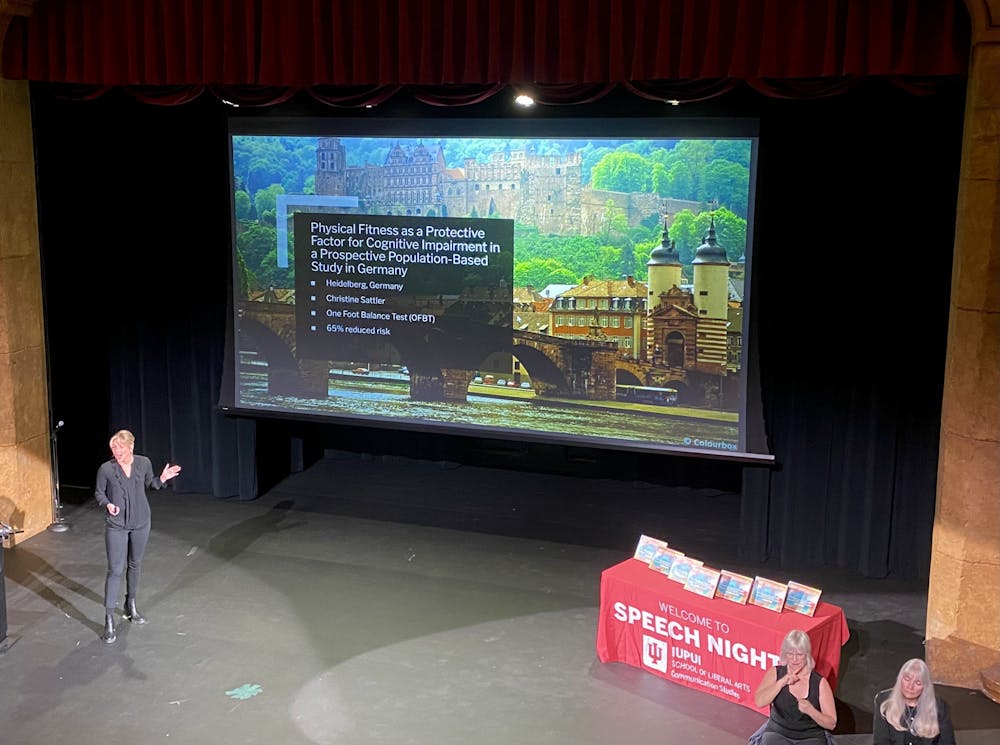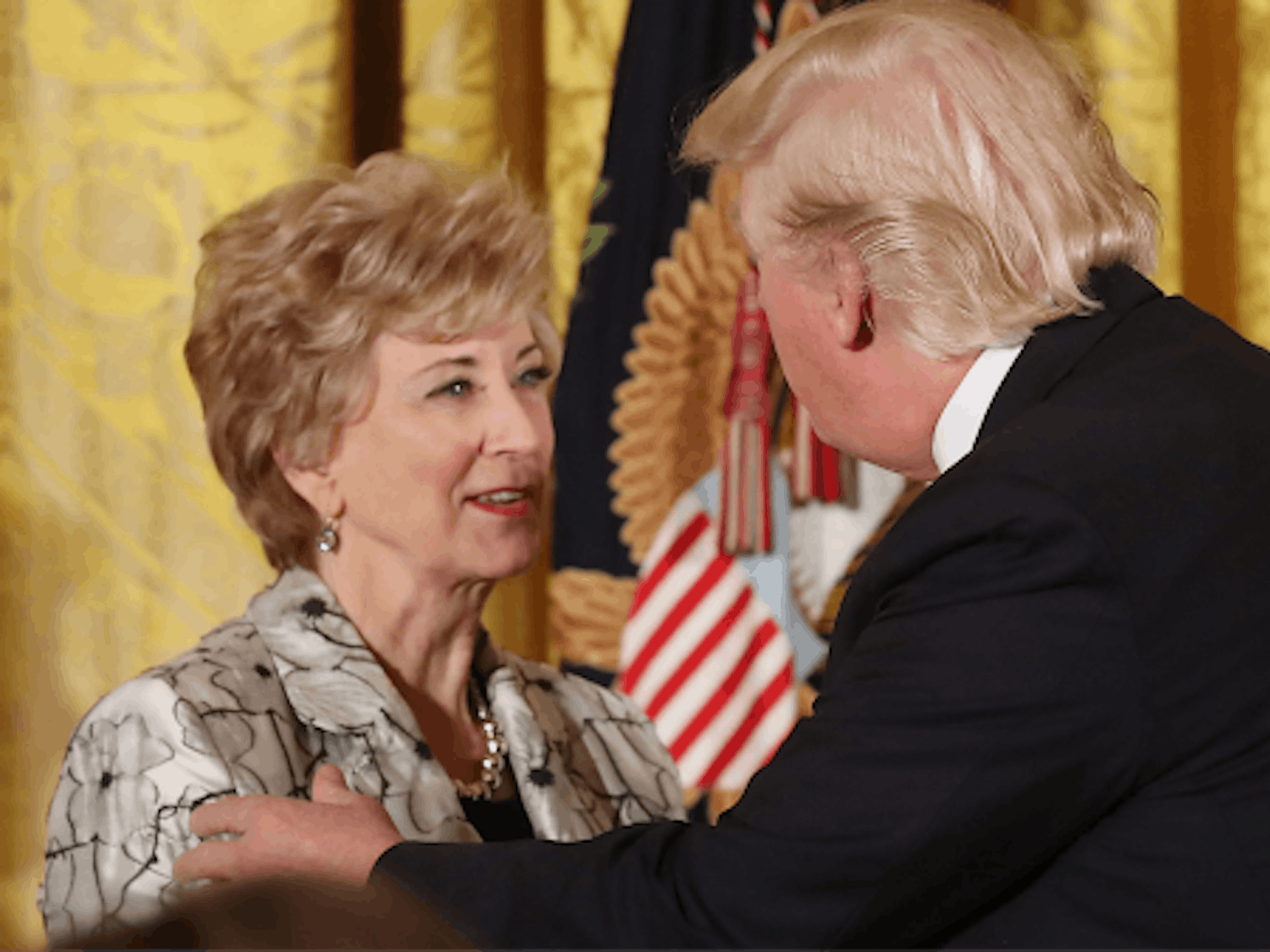On Dec. 4, 2023, hundreds of students, faculty members and contestant’s family members gathered to watch IUPUI’s 105th Communication Studies Speech Competition. This unique semiannual competition is IUPUI’s oldest ongoing event, which has been taking place for over half a century.
The competition is exclusively available to IUPUI students enrolled in COMM R-110, also known as Fundamentals of Speech Communication. This course teaches students essential public speaking skills and helps them learn how to be more confident communicators. At the competition, students are able to highlight skills they have learned through the course in front of a vast audience at Madam Walker Theatre.
There were seven total finalists at the competition, including Emma Adams, Maryam Beg, Rylan Conaway, Madeline Kelich, Josie Salinas, Anna Turgeon and Sarah Grace Wiggins. The speech topics included aging, media literacy, driving safety, public school enrollment fees and redlining, universal daycare, access to education for girls and prison rehabilitation. The diverse competition was accessible to both an in-person and virtual audience, as it was live streamed and recorded.
For this speech competition, an emphasis is placed on exploring a societal problem and calling the audience to action against the aforementioned dilemma. The speeches, which were all Monroe speeches, were each seven to eight minutes long. The Monroe speech style was created by Alan Monroe, and involves presenting five steps to persuade an audience to support a cause.
Maryam Beg, who was awarded first place, is a freshman majoring in political science and was taught by speech professor Ernest Agorde. Beg’s speech was titled “The Value of a Girl,” which focused on the importance of girls receiving education around the globe. Beg discussed how many girls are sold into marriage at a young age or made to participate in hazardous child labor, and are therefore unable to access education. To address this issue, Beg urged the audience to consider donating to organizations that support education for girls who fall into these at-risk populations. Beg commented on her experience in this event.
“I think that the topic of my speech was very important,” Beg said. “I feel very blessed to have been able to share it with such a large audience.”
The second-place contestant was Madeline Kelich, whose speech was titled, “Unsuccessful Aging.” Kelich is a junior majoring in health sciences. Kelich’s speech centered on cognitive and physical decline correlated with aging and the threat of dementia and Alzheimer's poses against the current aging population.
In her speech, Kelich shared how her grandmother suffers from dementia and how it has impacted her family, going into further detail about how this disease impacts the world. Kelich urged students to lower their chances of developing dementia by taking part in an active lifestyle and hobbies that involve physical activity.
Sarah Grace Wiggins placed third in this competition. Wiggins is a freshman majoring in art education with dreams of becoming an elementary art teacher after graduation. Wiggins' speech was titled, “Draw the Line at Educational Theft,” which focused on redlining in Indianapolis Public Schools. Redlining is a discriminatory practice that systematically prevents low-income or minority communities from accessing the same resources as wealthier communities. As a future Indianapolis Public Schools educator, Wiggins argued for equal and equitable access to education.
“Education is power,” Wiggins stated during her speech, “And education is a human right.”
All finalists received scholarships ranging from $750 to $2,000 for participating in this event with the scholarship amount being contingent on placement in the competition. These funds are applied to their tuition for the next semester. In addition to recognition for their speech proficiency and scholarship funds, finalists also received plaques commemorating their achievement.
Along with the scholarship funds and plaque, the benefits for students who participate in this competition are numerous. Being a proficient public speaker and communicator is a transferable career skill in any field, and participating in the competition builds these skills and provides participants with an achievement to include on their resume.
Steven Overbey, director of the Speaker’s Lab, believes students benefit from attending the competition.
“By attending Speech Night, students are able to hear from their fellow peers and be able to take away speech tips from their peers at finals night,” Overbey said. “This is a great way for students to get connected with each other.”
This semester’s speech competition was organized by the Speaker’s Lab, which is located in the basement of Cavanaugh Hall in room 001G. The lab provides free public speaking services to IUPUI students, such as reviews of speech outlines, assistance with brainstorming speech topics and a private place to record speeches. A new addition to the Speaker’s Lab is virtual reality gear to simulate an interactive audience while students practice giving their speech. This device is the first of its kind in the country to be implemented in a college speech lab, and was implemented to help combat speech anxiety.
With the use of new virtual reality technology to assist finalists in preparing for the competition, and an increase in scholarship funds provided to finalists, the Communication Studies Speech Competition continues to be an advantageous academic opportunity for IUPUI students. Overbey urges students to attend and participate in the event in the future.
“Speech Night is such an exciting time, so come!” Overbey said. “You will understand once you are there, and you won’t regret it.”
Kennedy McCormack (she/her) is a full-time IUPUI student who is majoring in Health Services Management. Kennedy is a first-year writer for the Campus Citizen and a former Speech Mentor at the IUPUI Speaker’s Lab.





